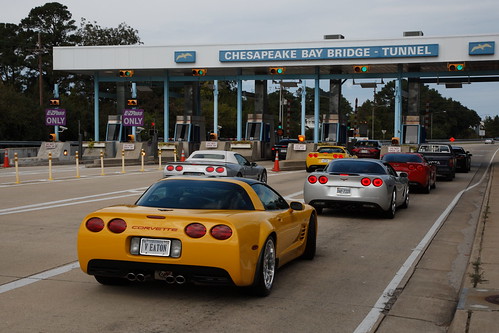 by Paul Goldman
by Paul Goldman
The issue which could easily decide the 2012 Senate race and 2013 Governor’s race is being played out right. Having run a few statewide campaigns in my time, I say this: read today’s editorial in the Virginian Pilot entitled “Hurtling toward a horrible deal,” and tell me it isn’t something which should send a shiver down the spines of George and Tim, along with Bill, Kenny, Terry, and Chap.
Let me admit the following up front: I am not an expert on the Hampton Road’s transportation issue or claim any particular knowledge of the tolls, etc. discussed in the editorial.
But my gut instinct is this: the editorial isn’t way off the mark in terms of the politics of things, which is why I started this post with a reference to the next two statewide elections.
Tidewater is a crucial part of any winning statewide strategy. Assuming the editorial is right in terms of how the public perceives the deal – politics being perception – then if the deal goes through, it would seem to be a defining moment in statewide politics.
Historically, these kinds of circumstances can lead to huge upheavals in traditional voting patterns on a short term basis such as the next two statewide elections, and of course local elections. They transcend traditional political parameters since so many people feel a personal stake.
Given the documented voter anger at these kinds of deals between government and government contractor types – which leave the taxpayer on the hook either through tolls, taxes or whatever – the editorial amazed me for this reason: assuming it is an accurate read of the politics, why isn’t there at least one of the candidates making his opposition to the deal a central part of their image?
As a political matter, what’s the downside?
If this is a “horrible deal” – again, we are assuming the Pilot is right on the politics – how does it hurt to be defined as opposing it?
But you say: If you are identified as helping to kill the deal, can’t you easily branded as a typical pol who never gets anything done, thus easily to blame for the region’s transportation.
My answer: NO. Admittedly, many of the big business interests will be opposed to you, and that will cost your campaign money big time.
BUT: If the Pilot is right, then there is brewing a populist backlash to the deal which would, presumably, favor those seen as having been against it.
Remember: Your political position would be something like “no one is more committed to fixing the problem – I’ve done X, Y and Z – but this deal is a huge tax increase and big government boondoggle masked as something good for Tidewater, when it is actually unfair if not ruinous to some many middle class families.”
The key: How do the middle class families, especially working, suburban women, feel about the deal? That’s the key Democratic constituency. If the Pilot is right, then these people will oppose it.
Again, this is the key swing vote in 2012 and 2013 in Tidewater. In terms of base party voters in this region, African-Americans, the key Democratic vote, can’t be any happier about paying the tolls discussed in the editorial than white guys, who are the key Republican vote.
That’s the hard reality, in stark terms.
Let me say this: If this deal were being pushed by Democratic Governor Creigh Deeds, I have to believe George, Kenny, and Bill would be openly, passionately opposed — I mean big time!
So is GOP Governor McD the reason for their relative silence?
To me, the biggest surprise of all is this: Why isn’t Terry, or for that matter Chap (who has a State Senate seat), not leading the opposition? By and large, they aren’t going to get the big Tidewater money tied to this deal anyway.
Let’s cut to the bottom line: The more the Pilot editorial is right about the deal and its politics, the more astounding is the failure of someone running for Senate or Governor not being publicly identified, in a big way, with the opposition to the deal.
That’s the 200% proof politics as I see it.
Finally: Even if the Pilot isn’t totally correct, how far off can they be? It isn’t exactly a hippy newspaper, but has generally supported the business community on these kinds of projects.
So if the Pilot Editorial board is going “populist”, then how much risk could their politics be?


















